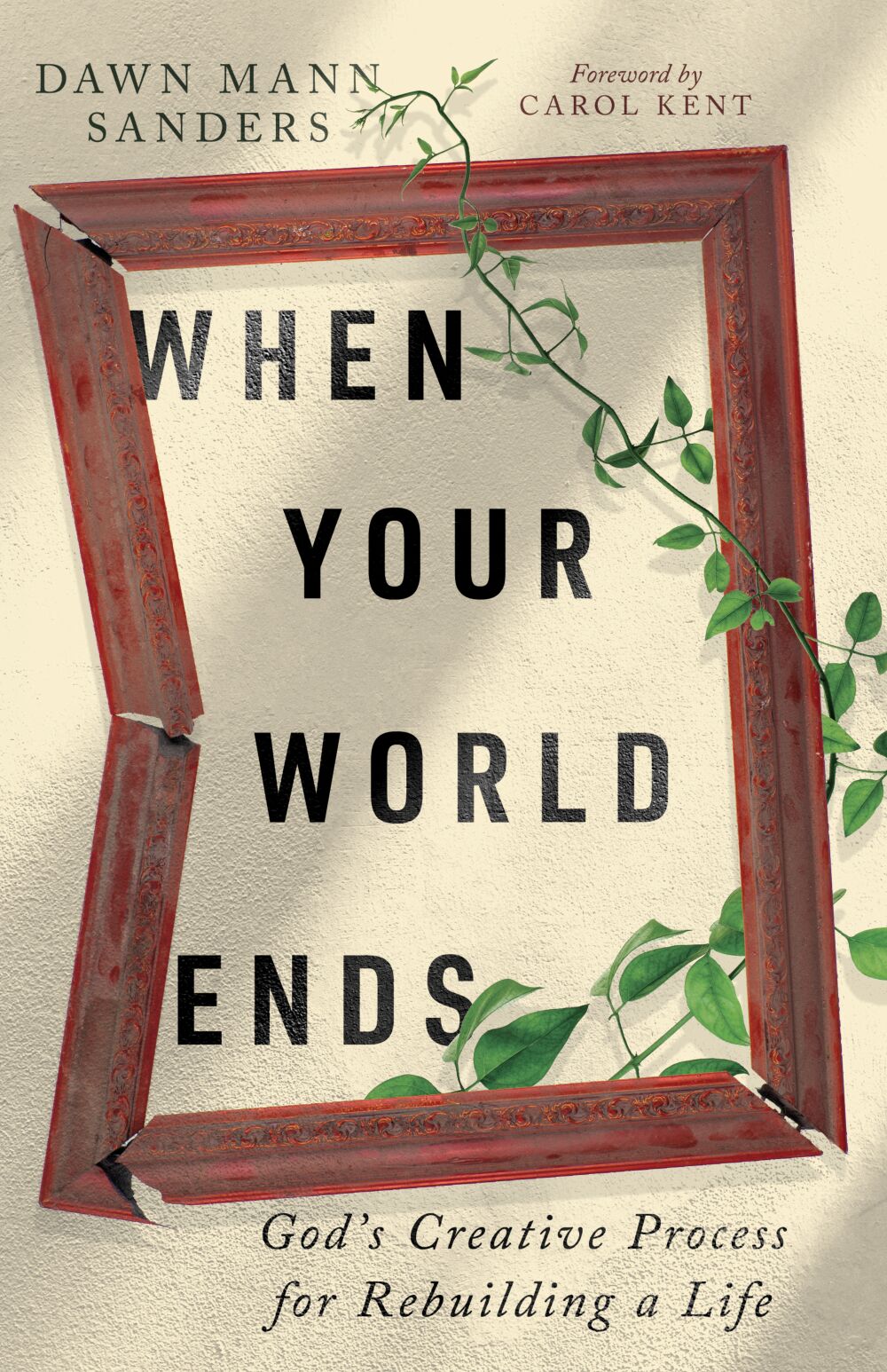When I married Reggie, I entered my Promised Land—a life flowing with milk and honey. Having been married before, I understood that there would be challenges, but Reggie and I purposed to work them out. For us, divorce wasn’t an option. The only option was to work through any challenges that came our way.
And for two years—until he died—we did exactly that. We worked through the few challenges that came our way.
The only option was to work through any challenges that came our way.
When I think about how well we did, I can’t help but smile.
I wish all parts of my life had gone so successfully, but alas, no. I’m in a good place now, but some of my past challenges got the best of me. Some battles I lost. Who am I kidding? Some battles I didn’t even fight…
Part 4 of How to Respond When Life Happens
“The days when the judges ruled” (Ruth 1:1) was the period between Joshua’s death and Saul’s reign (from approximately 1370 B.C. to 1041 B.C.). For the nation of Israel, it was a period riddled with spiritual failures. And the spiritual battles they lost manifested themselves in losses in their real/physical lives as well.
Now it came to pass, in the days when the judges ruled, that there was a famine in the land. And a certain man of Bethlehem, Judah, went to dwell in the country of Moab, he and his wife and his two sons. The name of the man was Elimelech, the name of his wife was Naomi, and the names of his two sons were Mahlon and Chilion—Ephrathites of Bethlehem, Judah. And they went to the country of Moab and remained there. ~ Ruth 1:1-2
These spiritual losses took the form of failures to possess the physical land—land promised to them by God. They failed to fully possess their Promised Land because they either wouldn’t fight for it or wouldn’t fight as directed by God.
For instance, after Israel sought Him as to who should fight first, God told Judah to go first. (Judges 1:2) Apparently, Judah was ready to fight, but not alone (v. 3). So, Judah asked Simeon to join them—and Simeon agreed, even though God already “delivered the land into [Judah’s] hand” in the spirit realm. To manifest it in the physical realm, all Judah had to do was join God in the fight. But Judah failed to recognize they weren’t alone. God was with them and had already won the battle. As a result, their partial faith manifested a partial victory (v. 19).
Partial victories due to partial or nonexistent fighting are the topic of today’s blog post, part 4 of our deep dive into the Book of Ruth.
The Felt Need Dilemma
In the faith-based writing genre in which much of my writing falls is the concept of the felt need—also known as the pain point. The felt need is what a person with a problem perceives that problem as. Felt needs are the needs you feel, express, seek solutions to alleviate, and are conscious of.
Take Denise. Denise has insomnia. She’s stressed out over her job and out-of-control children. Let Denise tell it, she needs a vacation. A girls’ trip with her friends would be the perfect solution. Only Denise has taken girls’ trips before. Oh, they work for a few weeks, sometimes months, but eventually, the insomnia returns—each time sooner and worse than before.
Denise’s felt need is rest. Her real need is boundaries.
Denise’s felt need is rest. Her real need is boundaries. Denise needs to set boundaries with her boss, co-workers, and children, so she isn’t stressed out as much.
As you can see, there’s a difference between felt needs and real needs. Both types of needs are important and require addressing, but they need to be prioritized differently.
There’s a difference between felt needs and real needs. It’s the difference between treatments and cures. Treating the symptoms will make you feel better temporarily, but until you cure the disease the symptoms will recur. Share on XThe difference is similar to addressing the symptoms versus addressing the disease. It’s the difference between treatments and cures. Treating the symptoms will make you feel better temporarily, but until you cure the disease the symptoms will recur. And nobody wants that.
The children of Israel didn’t want that. Yet, “in the days when the judges ruled,” that’s where they found themselves—treating the symptoms and not the cure.
Israel’s Felt Need in the Book of Judges
As mentioned above, the Tribe of Judah had a partial victory. They failed to rid their Promised Land of all of its previous inhabitants. Unfortunately, they weren’t alone. Beginning with the Tribe of Benjamin, tribe after tribe followed suit (v. 21-35).
Soon, the Israelites learned it wasn’t going to be pleasant having the Canaanites living among them because God allowed the Canaanites to become snares and thorns (2:3). Basically, Israel’s lack of faith and disobedience began a vicious cycle (v. 8-22):
- Disobedience – Israel did evil by forsaking God.
- Defeat – God removed His protection resulting in their capture.
- Distress – Israel cried out for a deliverer.
- Deliverance – God sent a deliverer, but upon the end of their leadership, Israel reverted back to evil—disobedience.
Each time, Israel cried out for a deliverer, God provided one. But the children of Israel didn’t need a deliverer to deliver them from an oppressor. Israel needed salvation from sin—the sin of disobedience due to a lack of faith. Therefore, they didn’t need a deliverer; they needed a Savior.
Like Denise above, the children of Israel sought to treat their symptoms—their felt needs—instead of curing their disease—their real needs.
Like Denise above, the children of Israel sought to treat their symptoms—their felt needs—instead of curing their disease—their real needs. As a result, the children of Israel were winning some battles, but losing others. And worse, they were in this vicious cycle of oppression for failing to fight the right battle.
Naomi’s Felt Need in the Book of Ruth
The Book of Ruth opens with the nation of Israel caught in a vicious cycle of oppression and deliverance. Into this situation enters Naomi—a woman living through a famine (Ruth 1:1). Her felt need is severe hunger, a deep physical emptiness in her gut. The famine leads her family to take refuge in Moab. Instead of finding food and fullness from Moab’s food supply, Naomi’s husband dies—extending her emptiness past her stomach to her heart (v. 3).
Naomi’s real need from the beginning of her story was spiritual.
In the wake of this reduction in family, Naomi’s sons extend their family by marrying Moabite women—only to die themselves (v. 4). With their deaths, Naomi’s emptiness brings our attention to her faith (v. 20)—and her real needs of unbelief and unforgiveness.
Like Israel, Naomi’s real need from the beginning of her story was spiritual. Before entering their Promised Land, God told the children of Israel their obedience would result in their eating “bread to the full” (Leviticus 26:3-5). However, God would restrain the rain in response to their disobedience and the restraining of the rain would cause a famine. So, the famine was the result of Israel’s continued disobedience.
'If you walk in My statutes and keep My commandments, and perform them, then I will give you rain in its season, the land shall yield its produce, and the trees of the field shall yield their fruit. Your threshing shall last till the time of vintage, and the vintage shall last till the time of sowing; you shall eat your bread to the full, and dwell in your land safely. ~ Leviticus 26:3-5
By going to Moab, Naomi and her family sought to escape the famine Israel was experiencing. Rather than humble themselves and submit to God’s laws, they thought they could escape God’s wrath and Israel’s punishment—only to find themselves in even more dire straits.
The Impact of Focusing on Felt Needs
Through the cycle of oppression and the famine, God was shaking Israel to remove that which could be shaken (Hebrews 12:25-28). Instead of remaining in Israel, instead of remaining in Bethlehem—which in the Hebrew means House of Bread—and trusting God that relief from the famine would come through their obedience, Naomi and her family “went to the country of Moab and remained there.”
Instead of remaining in Israel and remaining unshakable (v.28), Elimelech—the head of their family—focused on his family’s felt need, remained in Moab, and became shakable. So, God removed him.
When their sons became heads of the family and had the opportunity to return the family to Israel, they focused on their felt need, married Moabite women, and remained in Moab even longer. In doing so, they became shakable and God removed them too.
The pain of immense trials, intense suffering, and devastating catastrophes can take our focus off of any possible spiritual attacks against us—our real needs. Share on XThen, when Naomi became head of the family and had the opportunity to return the family to Israel, she did. And she brought with her Ruth, her daughter-in-law, who had a deep, abiding faith in the Lord—a faith that remained with the Lord. Through Ruth, Naomi’s focus returned to the Lord and her faith in the Lord was restored—her real need.
Next, Naomi counseled Ruth to marry Boaz, who had deep roots in the community causing Naomi and Ruth to remain in Israel—and more importantly, with the Lord—for the rest of their lives.
As you can see, Naomi’s story demonstrates the impact felt needs can have on our ability to remain, especially in the midst of trials, suffering, and catastrophes. The pain of immense trials, intense suffering, and devastating catastrophes can take our focus off of any possible spiritual attacks against us—our real needs. Instead, the pain focuses us on the symptoms we’re experiencing—our felt needs and we enter a vicious cycle experiencing only temporary relief.
Complete Deliverance from Felt and Real Needs
For complete deliverance, we can treat our felt needs to receive temporary relief, but we have to do this while curing our real needs. Felt needs feel real. So, temporary relief while seeking permanent relief is warranted. It just isn’t the end. Treating felt needs are the means to the end—curing the real needs.
Complete deliverance is always the goal—not because it feels better, but because complete deliverance allows you to remain.
The “How to Respond When Life Happens” Series:
- Part 1 – How to Respond When Life Happens
- Part 2 – The Freedom to Do You
- Part 3 – The Purpose of Chaos
- Part 4 – The Difference Between Felt Needs and Real Needs
- Part 5 – Who’s Ruling You? An Article about Submission
- Part 6 – Famines in the Bible
- Part 7 – The Differences Between Famines, Fasts and Feasts
- Part 8 – Famine in the Community
- Part 9 – The Meaning of the Land as Israel’s Possession
- Part 10 – What’s Important about Naomi’s Opening Situation in the Book of Ruth?
- Part 11 – Three Locations in the Book of Ruth
- Part 12 – Traveling in the Book of Ruth vs. Now
- Part 13 – Naomi’s Family’s Names in the Book of Ruth







